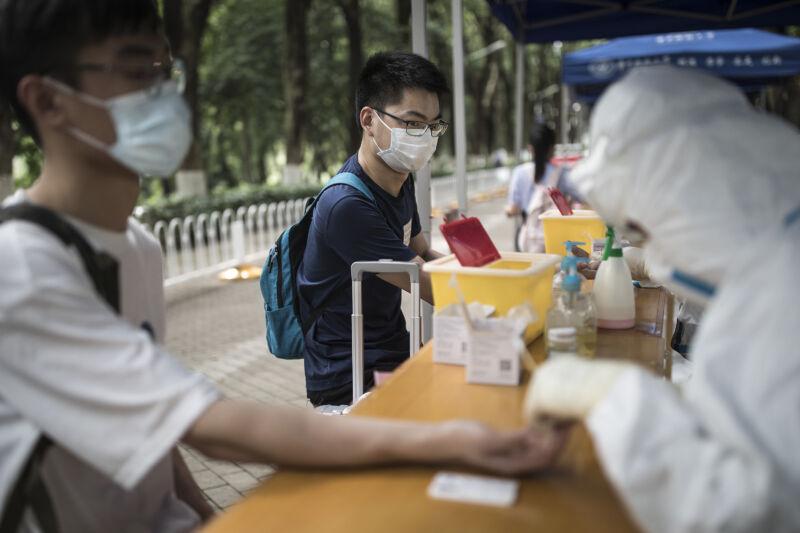Immunity to COVID-19 may wane just 2-3 months after infection, study suggests
Ars Technica » Scientific Method 2020-06-19

Enlarge / WUHAN, CHINA: The medical detection of antibodies for fresh graduates in Huazhong University of science and technology on June 11. 2020 in Wuhan, Hubei Province, China. (credit: Getty | Stringer)
Protective immune responses that build up during a SARS-CoV-2 infection may weaken just two to three months later—particularly if the infection didn’t come with any symptoms, a new study suggests.
The finding does not necessarily mean that people will no longer be immune to the novel coronavirus after a few months. The lower levels of the immune responses measured in the study may still be enough to thwart the virus, and there are other types of immune responses not examined in the study that play a role in immunity. Overall, there are still many unknowns about potential immunity to SAR-CoV-2 infections, including who is most protected and how long that protection may last.
But the authors of the new study say that their findings are enough to raise more concerns about the potential use of so-called “immunity passports"—documents indicating someone is immune based on past infection. The authors—a team of researchers in Chongqing, China—also suggest that their findings support the continued use of physical distancing and other prevention efforts until we have a clearer understanding of immunity.